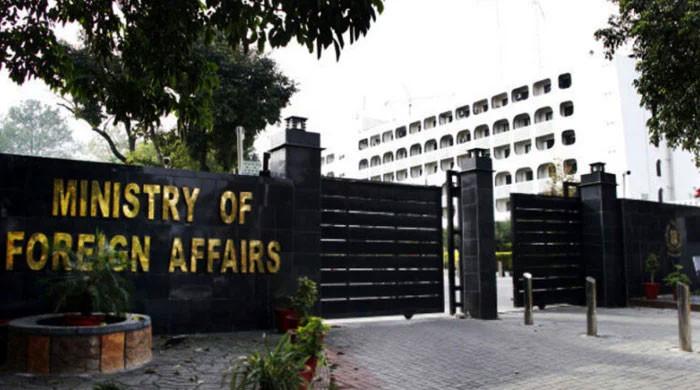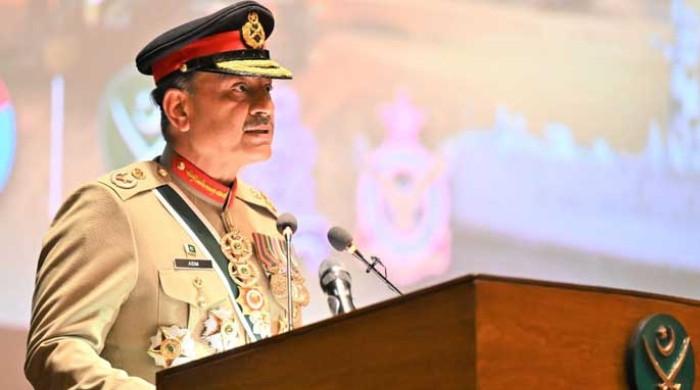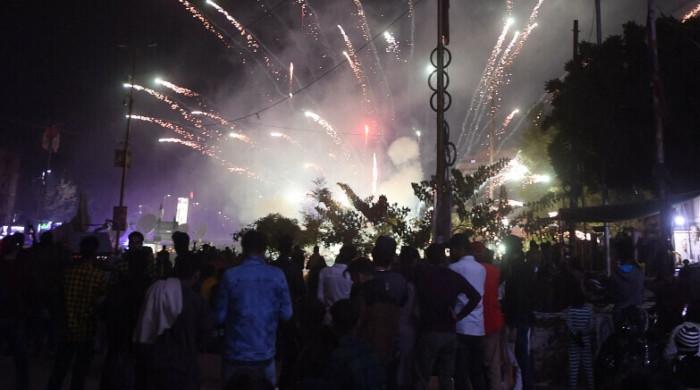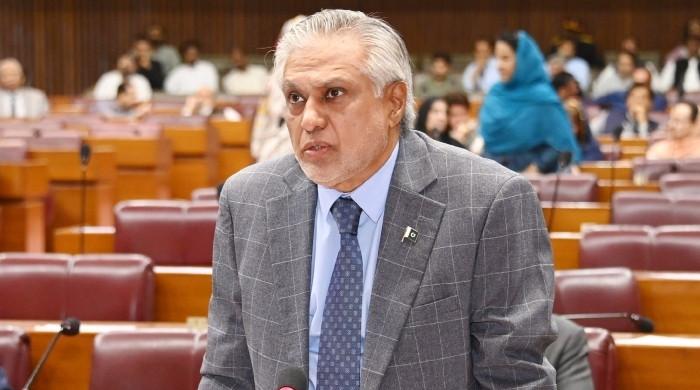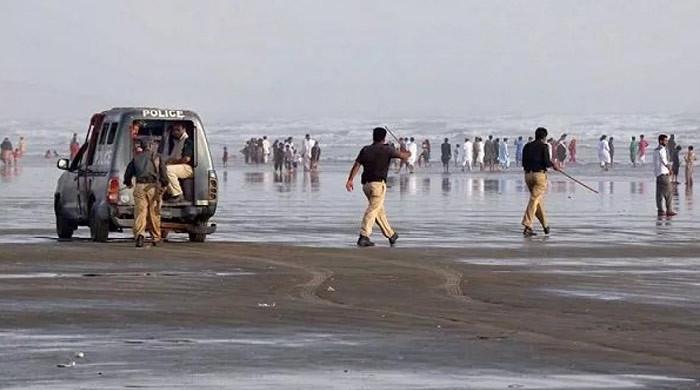Elections 1990: Benazir out, Nawaz in — with President Ishaq's aegis
This video report, covering the 1990 elections, is part of a series about the history of Pakistan elections since 1970
January 29, 2024
With five general elections, the sacking of an equal number of governments, the accidental death of a dictator, the return of Benazir Bhutto, and the rise and fall of Nawaz Sharif, the 1985-1999 period was one of the most turbulent for Pakistani politics and the country overall.
After Zia-ul-Haq’s non-party elections in 1985, party-based general elections were held in 1988. The Pakistan People's Party (PPP) gained a majority and Benazir became the first woman prime minister of the Muslim world. But the PPP’s government lasted only 18 months before then-president Ghulam Ishaq Khan dissolved the assemblies under Article 58 2(B) of the constitution.
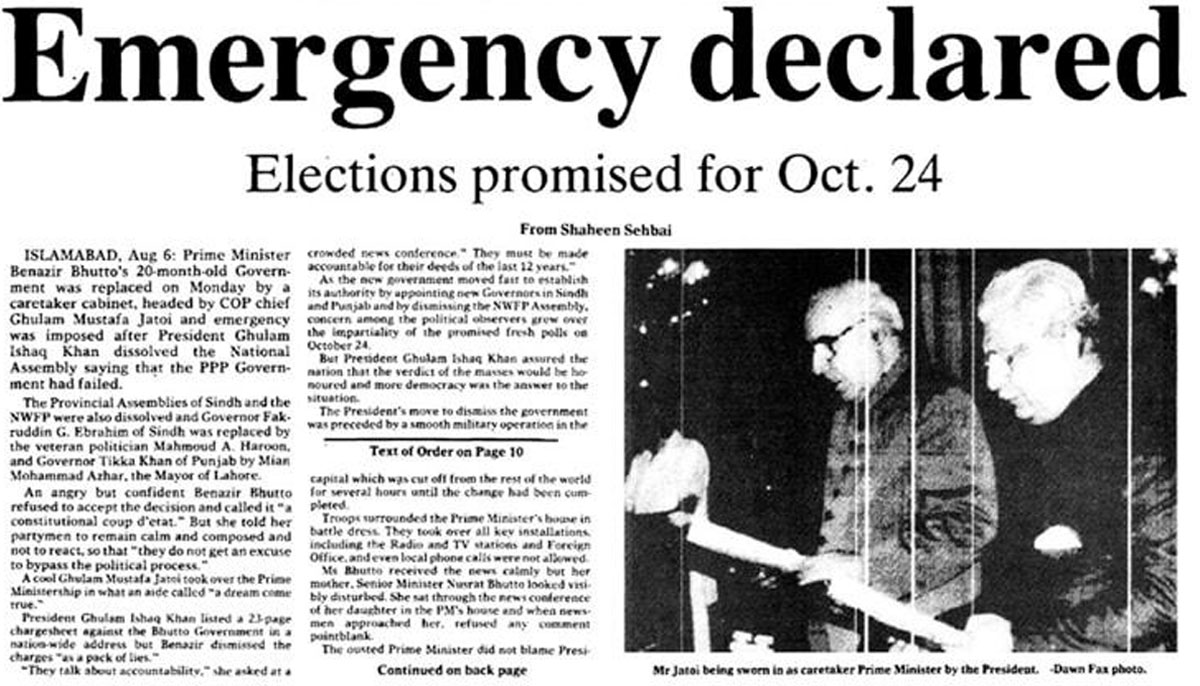
Pakistan’s next general elections were held on October 24, 1990. A close contest was expected between the Pakistan Democratic Alliance (PDA) led by Benazir and the Islami Jamhori Ittehad (IJI) led by Nawaz.
The IJI had the backing of President Ghulam Ishaq Khan, who had ordered the then Army Chief General Mirza Aslam Baig to help the alliance defeat the PPP. This was confirmed by General (retd) Baig and the then-ISI chief Hameed Gul on multiple occasions.
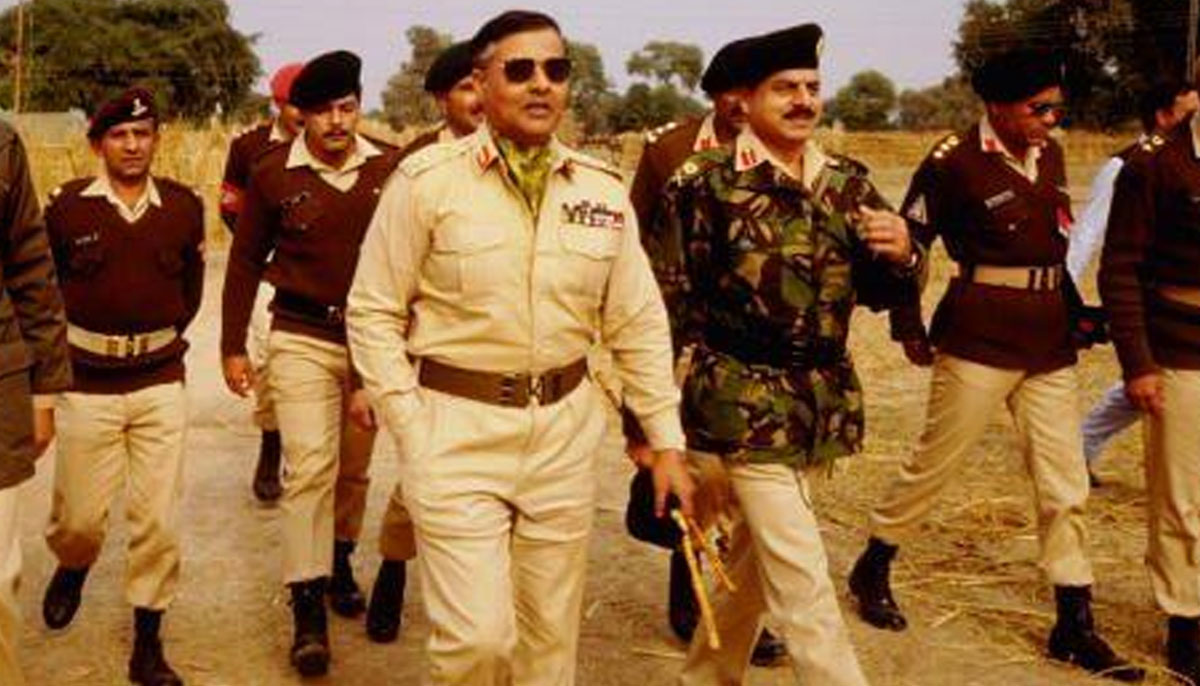
On October 24, elections were held, and according to the results, the IJI got 37.37% of total votes in these elections while the PPP-led Pakistan Democratic Alliance (PDA) was not far behind with 36.83%.
However, the PDA’s votes could not transform into seats, as the IJI got 106 seats and the PDA only 44 seats. The IJI won a majority in Punjab and KP, in Sindh the PDA secured the most seats, while in Balochistan, the Jamhori Watan Party (JWP) emerged victorious.
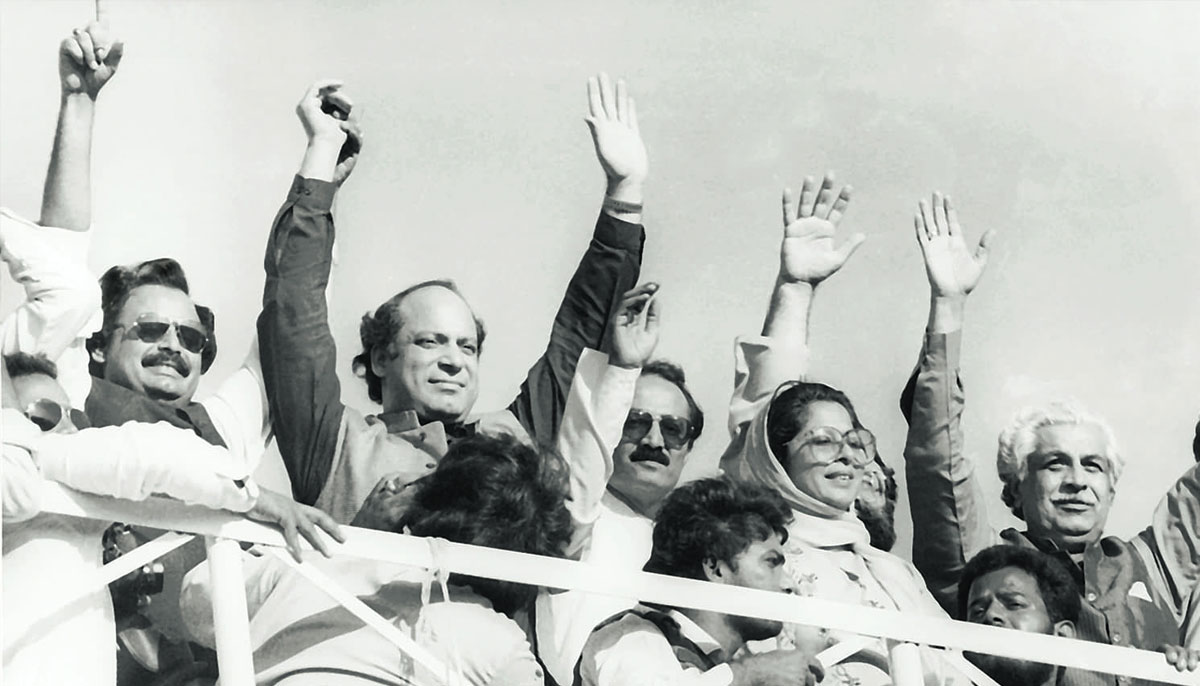
After the elections, Nawaz was nominated as the Prime Minister by the IJI. He took oath as Pakistan’s PM for the first time on November 7, 1990, but his government could also last only two years.
Turnout
In the 1990 general elections, there was a minor surge, and the overall turnout was 45.46% with 46,607,233 total registered voters. Punjab led in turnout with 50%, followed by Sindh at 43%, KP at 36%, while Balochistan at 29% remained the lowest.
Later, President Ghulam Ishaq Khan dismissed Nawaz’s government on charges of corruption on April 18, 1993, forcing Pakistan to vote for the third general in a short span of five years.
The writer is a staffer at Geo.tv, he tweets X@ranashaharyar01




